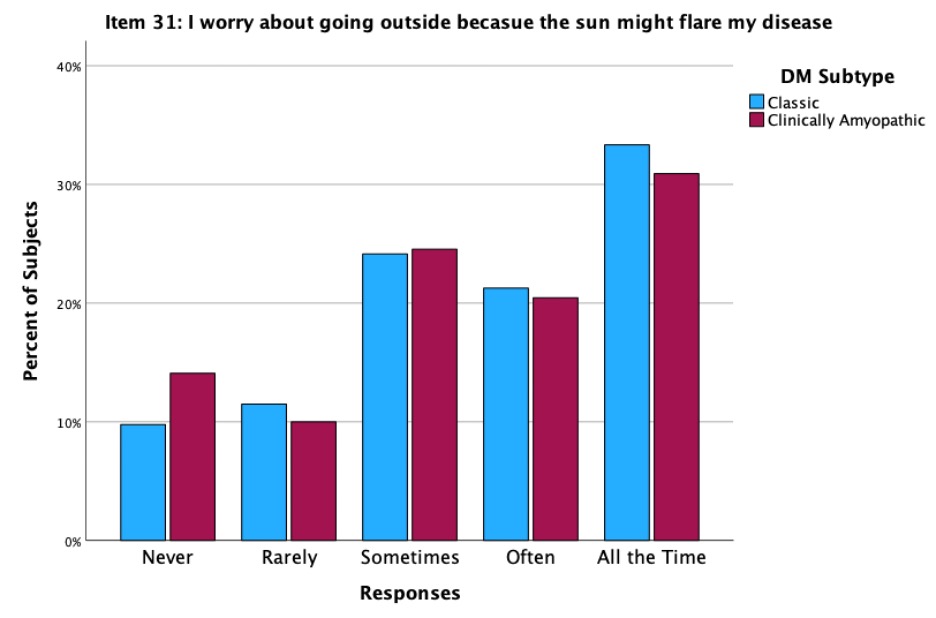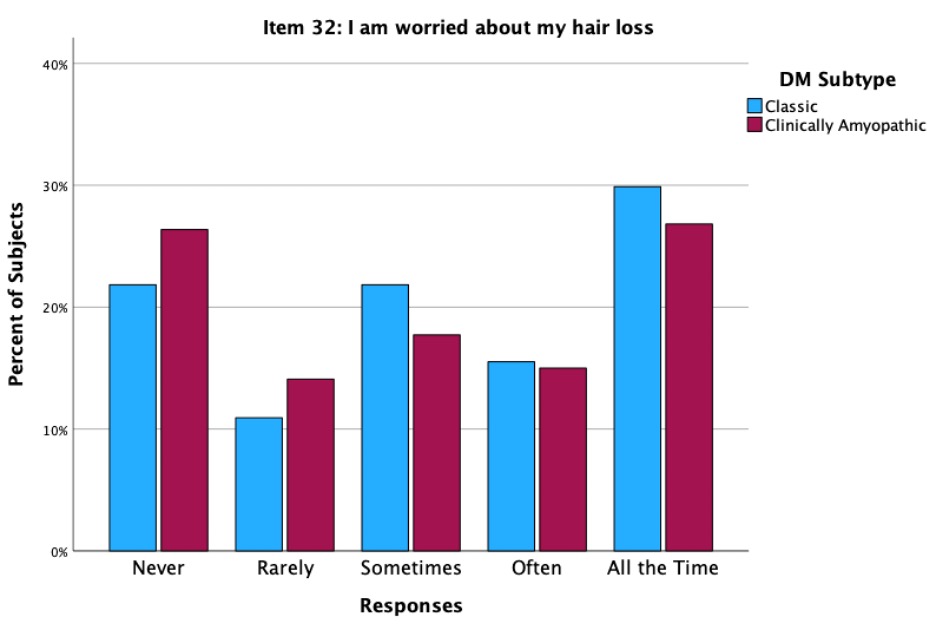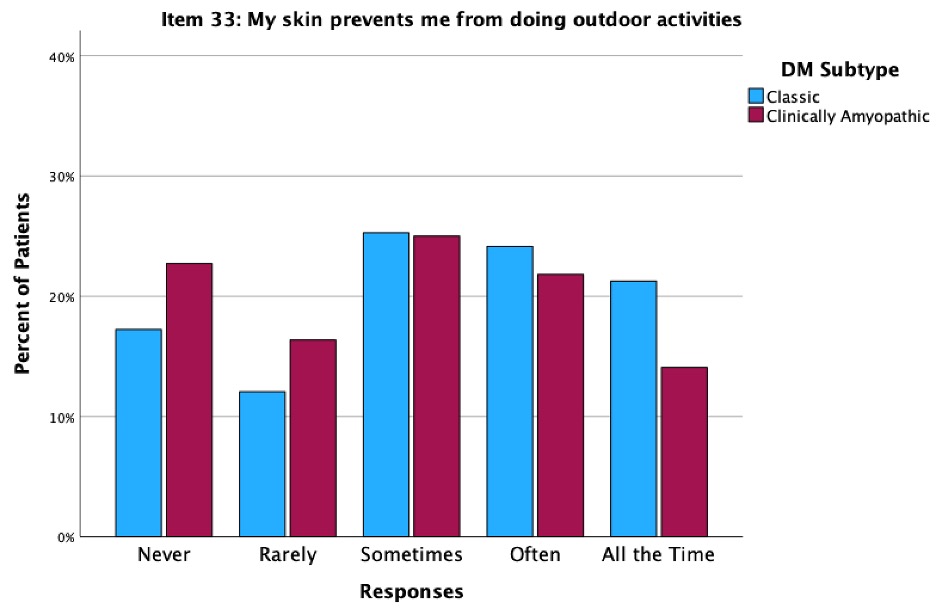Session Information
Date: Sunday, November 12, 2023
Title: (0325–0344) Patient Outcomes, Preferences, & Attitudes Poster I
Session Type: Poster Session A
Session Time: 9:00AM-11:00AM
Background/Purpose: Photosensitivity (PS) has been documented in dermatomyositis (DM) with symptoms including aggravation of preexisting cutaneous lesions and abnormal transient erythemal responses (Cheong WK et al. 1994). DM has a large negative impact on quality of life (QoL), and DM skin disease activity has been correlated with poorer QoL (Goreshi R et al. 2011). Yet, the impact of PS specifically on QoL in DM has not been well studied. The aims of this study are to examine the impact of PS on QoL and to determine whether there is a relationship between PS-specific QoL measures and degree of cutaneous disease activity in DM.
Methods: Prospectively acquired data from 401 subjects with either classic DM (CDM) or clinically amyopathic DM (CADM) who completed the Skindex-29+3 was used. The Skindex-29+3 is a modified version of the Skindex-29, a validated measure of skin-specific QoL (Chren MM et al. 1997). Two of the three items added to the Skindex-29 relate to PS, items 31 and 33: “I worry about going outside because the sun might flare my disease” and “My skin disease prevents me from doing outdoor activities”. The average of these two items comprises the PS subscale. Item 32, “I am worried about my hair loss”, is the third added item in the Skindex-29+3. We compared patient responses to cutaneous disease activity using the Cutaneous Disease Area and Severity Index (CDASI), a validated tool for measuring DM disease (Ahmed S et al. 2020). Subject responses were not normally distributed, and group differences were assessed using the Wilcoxon rank-sum test. All three additional items of the Skindex-29+3 were correlated to CDASI activity scores using Spearman correlations. The three items were also correlated to the symptom, emotion, and function subscales of the Skindex-29+3 using Spearman correlations.
Results: Of 401 subjects, 52% worried “often” or “all the time” about going outside because the sun might flare their disease (Item 31). 42% of subjects reported worrying about their hair loss (Item 32) “often” or “all the time”. 39% of subjects reported being prevented from doing outdoor activities (Item 33) “often” or “all the time”. There were no significant differences in median responses for Items 31 and 32 between patients with CDM and CADM (p = 0.407, 0.239), but there was a significant difference for Item 33 (p = 0.021), with CDM subjects reporting higher scores. There was a moderate, positive correlation between the PS subscale and both the function and emotion subscales for all subjects (rs = 0.580, p < 0.001, rs = 0.527, p < 0.001). There was another moderate, positive correlation between Item 33 and both function and emotion subscales (rs = 0.611, p < 0.001, rs = 0.516, p < 0.001). We found a negligible correlation for Items 31, 32, 33, and the PS subscale in relation to CDASI activity scores (rs = 0.124 p = 0.013, rs = 0.249 p < 0.001, rs = 0.183 p < 0.001, rs = 0.169 p = 0.001).
Conclusion: PS in DM has a significant impact on QoL in CDM and CADM. Concern regarding hair loss is common among subjects with DM. Subjects with CDM experienced greater limitation in participating in outdoor activities when compared to subjects with CADM (p = 0.021). Subjects that experienced greater PS-related concerns and limitations had greater emotional burden and functional impairments.
To cite this abstract in AMA style:
Gebre K, Pandya R, Kleitsch J, Lim D, Feng R, werth v. Impact of Photosensitivity on Quality of Life in Dermatomyositis [abstract]. Arthritis Rheumatol. 2023; 75 (suppl 9). https://acrabstracts.org/abstract/impact-of-photosensitivity-on-quality-of-life-in-dermatomyositis/. Accessed .« Back to ACR Convergence 2023
ACR Meeting Abstracts - https://acrabstracts.org/abstract/impact-of-photosensitivity-on-quality-of-life-in-dermatomyositis/



